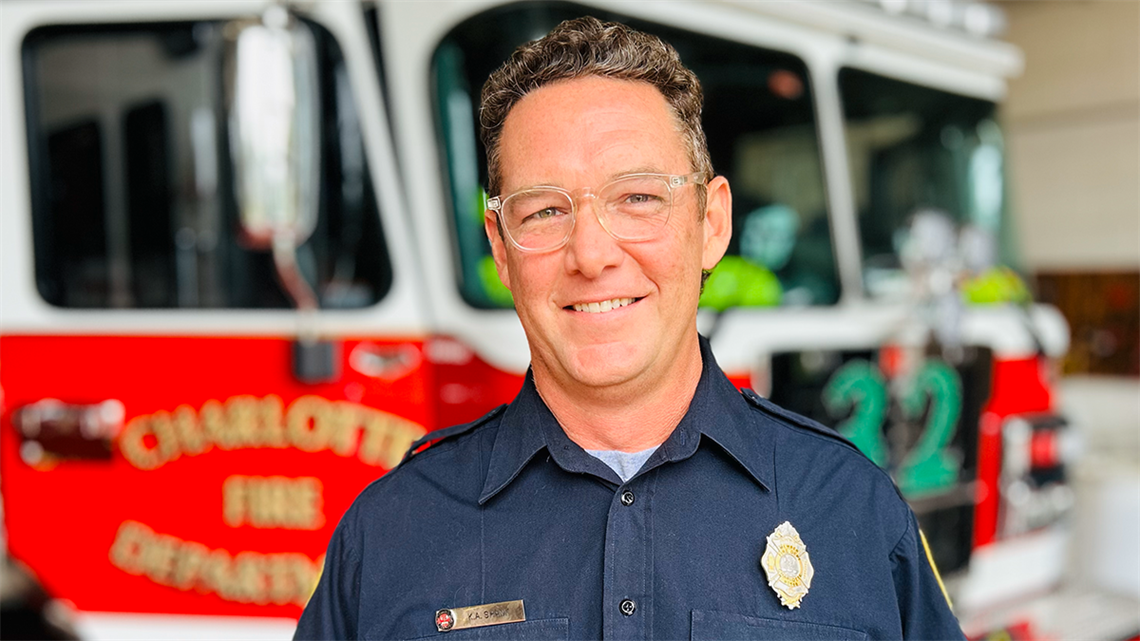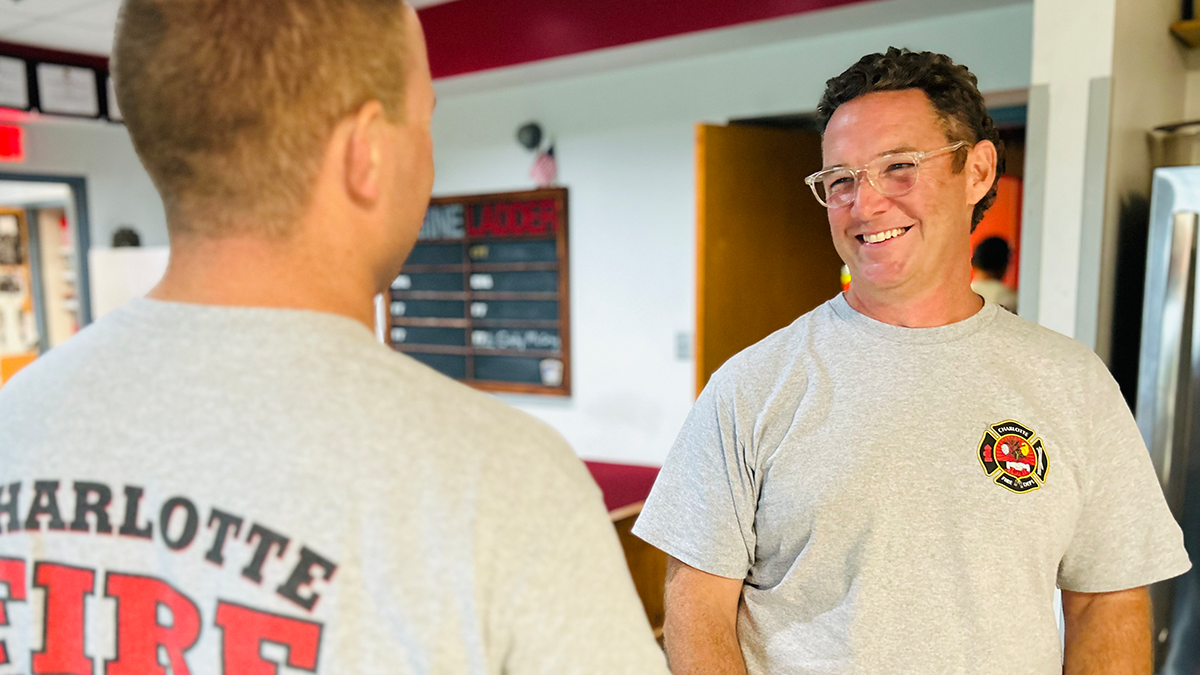Charlotte Firefighter Awarded CIT First Responder of the Year
Published on July 29, 2024

Charlotte Fire Engineer Kyle Shank, Crisis Intervention Team (CIT) First Responder of the Year.
By Kevin Campbell
Untreated mental illness often blocks access to vital services. Mecklenburg County’s Crisis Intervention Team (CIT) tackles this issue head on. This innovative program reshapes how first responders engage with individuals in crisis, fostering better outcomes for the community. By bridging gaps and breaking barriers, CIT paves the way for improved mental health support and understanding.
For unwavering dedication to mental health, Kyle Shank earned top honors from NAMI North Carolina. The Charlotte Fire engineer’s community wellness initiatives set him apart as the CIT First Responder of the Year, showcasing the vital link between emergency services and mental health support.

Kyle Shank's CIT First Responder of the Year award from NAMI North Carolina.
“Everybody struggles and your struggle might look different than my struggle. Just being there, serving people, helping people and being present makes a difference,” Shank said.
CIT programs forge vital links across America. From Charlotte to countless cities, they unite first responders, mental health experts, hospitals, and those facing mental illness. These initiatives build understanding, bridging gaps between services and families in over 2,700 communities nationwide.
Locally the CIT program has been available to police officers. Shank was part of the first class given to Charlotte firefighters.
“A big thing that I came away with is to be present. Respect that person as a person and don’t label them. And listen well,” Shank said.
A veteran of the U.S. Marine Corps, Shank is a Charlotte native and has been serving the community as a Charlotte firefighter for fifteen years. Shank is currently assigned as an engineer at Firehouse 32.

Engineer Shank drives Engine 32 at Firehouse 32.
CIT enhances safety and communication through intensive training and community partnerships. It equips firefighters and police to better assist those with serious mental illness in crisis. By identifying resources and improving interactions, CIT empowers first responders to effectively handle challenging situations, benefiting both officers and the community.
“We usually see people come into people when they’re freaked out. The same thing when people call 911. For somebody who’s in a mental crisis or they have mental illness, that’s usually either when they’re in fight or flight [mode]. You sit and listen, ask questions and acknowledge them. Respect them, love them well,” Shank said.
“Kyle is a model first responder, both responding to mental health crisis in the community and advocating for wellness initiatives within his department. Since completing his CIT training as a member of the first CIT class specifically for Fire, Kyle has utilized his skillset to respond to all types of calls,” John Osborn, CIT Coordinator for Mecklenburg County, said. “Kyle makes a difference every day with his peers and the community.”
As a military veteran, Shank completed the VCIT (veterans’ crisis intervention training) course in 2023 as well. As a “Struggle Well” trainer, he instructs firefighter recruits at Charlotte’s Fire Training Academy, imparting resilience skills alongside firefighting techniques.
A skilled listener, Shank serves on Charlotte Fire’s Peer Support Team. Colleagues know him as a reliable confidant, always ready to lend an ear when needed.

Shank and fellow Charlotte Fire crewmember at Firehouse 32.
“Whether you are a firefighter, first responder, mental health professional, or someone directly affected by mental illness, we can all become advocates for changing the way our community responds to mental health crisis,” Fire Chief Reginald T. Johnson, said. “Kyle is an inspiring example in improving our city.”
“We all should have a commitment to people being well and to people being loved and to people being heard and to people being respected as humans, not as numbers,” Shank said.